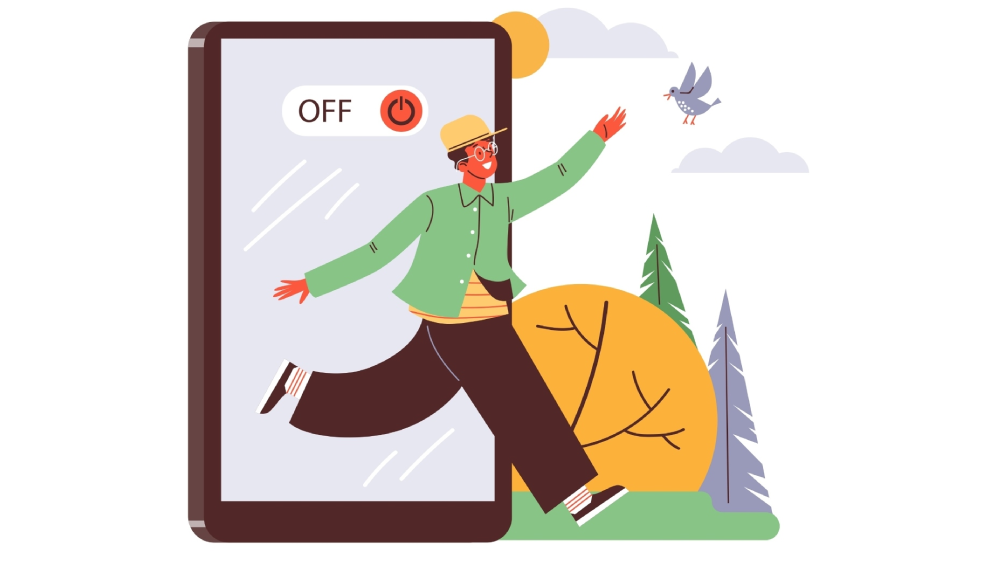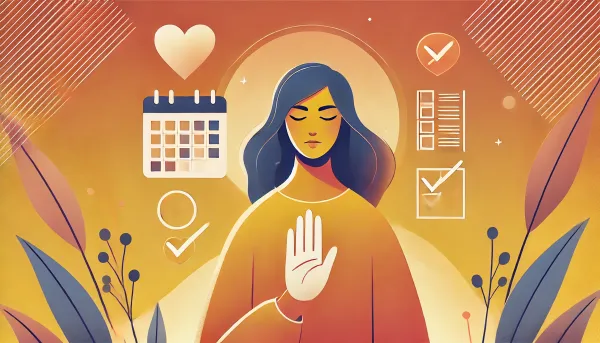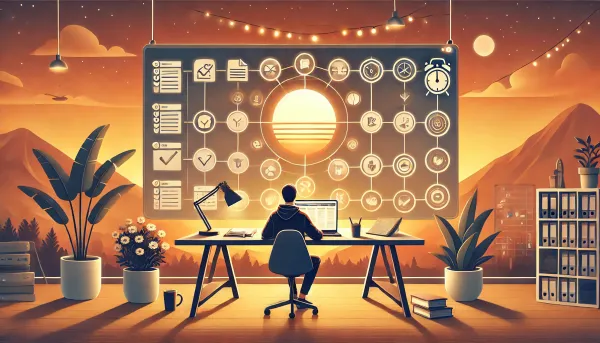Digital Detox and Why It Matters

In today’s hyperconnected world, technology plays an integral role in our daily lives. From smartphones to social media, staying "always on" can take a toll on our mental, physical, and emotional well-being. As the holiday season approaches, now is the perfect time to reassess our digital habits and consider a digital detox to regain balance and reconnect with what truly matters.
What Is a Digital Detox?
A digital detox refers to a period when you intentionally reduce or abstain from using technology, such as smartphones, tablets, computers, and social media. The goal is to step away from constant connectivity, refocus on real-world activities, and enhance your overall well-being.
Why Is a Digital Detox Important?
Excessive technology use can lead to several adverse effects, ranging from stress and disrupted sleep to strained relationships and decreased productivity. Here are some reasons why a digital detox is worth considering:
1. Reduce Stress and Anxiety
The constant barrage of notifications, emails, and social media updates can leave us feeling overwhelmed. A digital detox can help lower anxiety levels and provide a sense of calm.
2. Improve Sleep Quality
The blue light emitted by screens interferes with melatonin production, making it harder to fall asleep. Stepping away from devices, especially before bedtime, can significantly enhance your sleep quality.
3. Strengthen Relationships
Spending less time on devices means you can be more present with family and friends. Shared moments during meals or gatherings can feel richer without the distraction of screens.
4. Enhance Productivity and Focus
Limiting multitasking by focusing on one screen or activity at a time improves concentration and overall productivity.
5. Reconnect With Yourself
Time away from devices can help you rediscover hobbies, reflect on personal goals, and invest in self-care activities that nurture your mind and body.
How to Start a Digital Detox
Embarking on a digital detox doesn’t mean giving up technology entirely—it’s about setting boundaries and finding balance. Here’s a step-by-step guide to get started:
1. Set Clear Goals
Decide what you want to achieve with your detox. Whether it’s better sleep, reduced stress, or more time with loved ones, having clear objectives will keep you motivated.
2. Define a Time Frame
Start small by committing to a tech-free afternoon or a weekend. Gradually increase the duration as you grow more comfortable.
3. Create Tech-Free Zones
Designate areas in your home, such as the bedroom or dining room, as no-phone zones. This promotes quality time and reduces distractions.
4. Turn Off Notifications
Disable non-essential push notifications to minimize interruptions and reclaim focus.
5. Use Paper Instead of Screens
Replace digital tasks with analog alternatives, like reading a book or journaling on paper.
6. Spring Clean Your Social Media
Unfollow accounts that induce stress or negativity. Curate a digital space that uplifts and inspires you.
7. Rediscover Offline Hobbies
Use your newly freed time to explore activities like cooking, gardening, or exercising.
Digital Detox During the Holidays
The holidays are an ideal time to embark on a digital detox. With family gatherings, festive traditions, and a break from work, it’s the perfect opportunity to unplug and be fully present. Plus, stepping away from screens allows you to savor the magic of the season, connect with loved ones, and create cherished memories.
FAQs About the Importance of Digital Detox
1. Why is a digital detox necessary?
A digital detox helps reduce stress, improve sleep, and foster better relationships by encouraging a balanced approach to technology use.
2. How often should I do a digital detox?
This depends on your lifestyle. Some people benefit from a weekend detox every few months, while others prefer regular tech-free evenings or weekly breaks.
3. Can a digital detox improve mental health?
Yes! Studies have shown that reducing screen time can alleviate symptoms of anxiety, depression, and FOMO (fear of missing out).
4. What are some signs I need a digital detox?
If you feel anxious without your phone, frequently multitask, or have trouble sleeping, these could be indicators that it’s time to take a break.
FAQs: How Do I Know If I Need a Digital Detox?
1. How do I know if I’m addicted to my phone?
Signs of phone addiction include compulsively checking notifications, feeling anxious when away from your device, and spending excessive time on social media. Check your screen time!
2. What if I can’t completely disconnect due to work?
You don’t have to! Set boundaries, like tech-free evenings or designated “check-in” times, to strike a healthy balance.
3. How can I maintain the benefits after my detox?
Incorporate tech-free habits into your routine, such as device-free meals or screen-free bedtimes.
FAQs About Mairy
1. What is Mairy?
Mairy is a daily mood diary designed to help you track emotions and identify patterns in your life. It’s your personal guide to better mental health.
2. How can Mairy support my digital detox?
Mairy encourages mindful reflection and self-awareness. By logging your feelings and activities, you can uncover triggers for stress or overuse of technology.
3. Why choose Mairy?
Mairy offers bespoke features tailored to your unique needs, helping you take actionable steps to improve your mental well-being.
Embrace the Change
A digital detox is a powerful way to reset, recharge, and refocus on what truly matters. Whether it’s to enhance your relationships, sleep better, or simply find joy in the holiday season, the benefits of unplugging are undeniable.
This holiday, consider taking the first step toward a healthier relationship with technology. And remember, tools like Mairy can guide you in maintaining mental clarity and balance, both during your detox and beyond.
Start your journey today—your mind and body will thank you.
~ The Mairy Team





